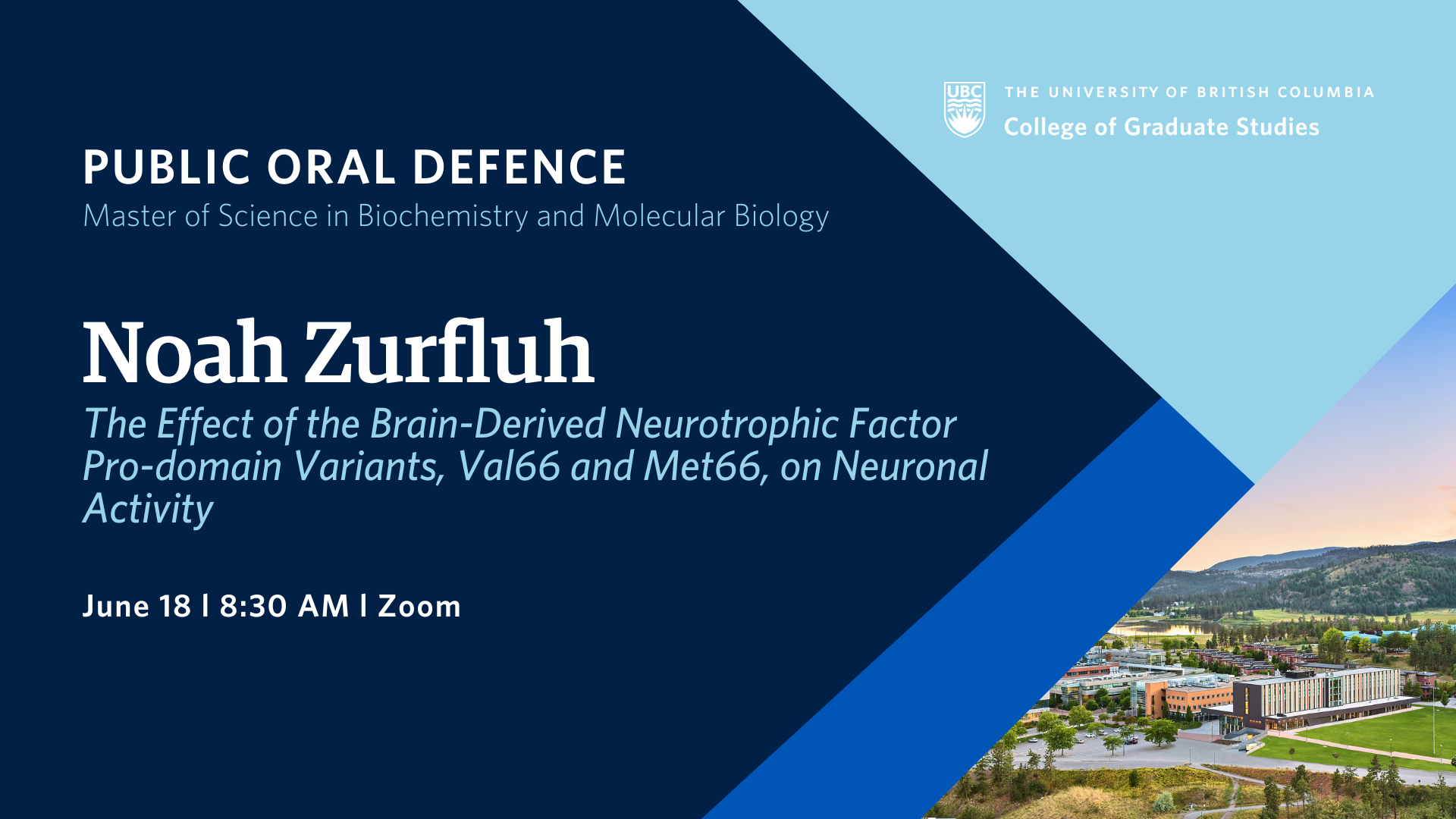
- This event has passed.
Thesis Defence: The Effect of the Brain-Derived Neurotrophic Factor Pro-domain Variants, Val66 and Met66, on Neuronal Activity
June 18, 2024 at 8:30 am - 12:30 pm

Noah Zurfluh, supervised by Dr. Philip Barker and Dr. Julien Gibon, will defend their thesis titled “The Effect of the Brain-Derived Neurotrophic Factor Pro-domain Variants, Val66 and Met66, on Neuronal Activity” in partial fulfillment of the requirements for the degree of Master of Science in Biochemistry and Molecular Biology.
An abstract for Noah Zurfluh’s thesis is included below.
Defences are open to all members of the campus community as well as the general public. Please email philip.barker@ubc.ca to receive the Zoom link for this defence.
ABSTRACT
Synaptic plasticity is a key cognitive function that allows the brain to remain dynamic. It functions by strengthening and weakening synaptic connections in an activity-dependent manner. Cellular mechanisms such as long-term potentiation (LTP) and long-term depression of synapses (LTD) can induce functional and morphological changes and thereby alter synaptic strength. These changes to synaptic activity and structural integrity are regulated by neurotrophic factors. Any disruption in neurotrophic function, whether due to mutations or variations in expression levels, is likely to lead to imbalances in LTD/LTP dynamics. These imbalances, in turn, contribute to structural and functional alterations often associated with mental illnesses and cognitive dysfunctions. Notably, a mutation in the pro-domain of the brain-derived neurotrophic factor, termed Met66, has been associated with decreasing hippocampal volume and increasing the risk for anxiety, depression, and cognitive dysfunction. Interestingly, Dr. Gibon demonstrated that Met66 can disrupt neurotransmission, however, the mechanism behind how Met66 can interfere with neural activity is unknown. Two proposed mechanisms for Met66 have been proposed; either based on reducing BDNF levels or ligand binding effects. Considering that Met66 can reduce hippocampal volume as well as disrupt neuronal activity and that LTD is the mechanism responsible for synapse weakening and elimination, it was hypothesized that Met66 induces LTD in synapses. This hypothesis was tested by looking at various aspects of the LTD, including morphology, protein expression, and phosphorylation. The results showed that Met66 alone did not significantly alter Ca2+ dynamics, morphological changes, or BDNF signaling pathways. However, both Val66 and Met66 affected the pre-synaptic compartment by decreasing the level of SYN-1, while Met66 also affected the post-synaptic compartment by decreasing the PSD-95 protein expression. These observations suggest that Met66 may not induce LTD of synapses by inducing changes in Ca2+ dynamics, developmental morphology or interfering with BDNF/TrkB signaling. However, while the precise mechanism remains elusive, our findings suggest that Met66 may impact neuronal activity by modulating specific changes within synaptic compartments. Future research could focus on understanding the role of Met66 in synaptic compartments, confirm its potential aberrant properties, and explore other aspects of LTD.